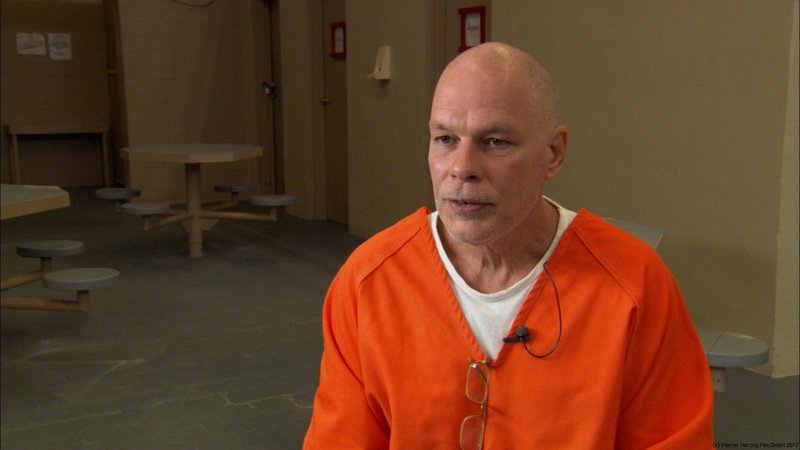This superb true crime doco by Werner Herzog examines the case of a convicted wife murderer who converted to Islam in prison and confessed to earlier murders. A case of genuine remorse or a ruse to postpone execution?

When I talk to you, it does not necessarily mean that I have to like you. But I respect you and you are a human being, and I think human beings should not be executed.
Screened as part of NZIFF 2012
Death Row: Portrait of James Barnes 2012
Conceived alongside the feature Into the Abyss, the Death Row series consists of four riveting hour-long documentaries, each an exemplary, in-depth true crime report in itself. Each is shaped around an interview with a convicted killer (or two) awaiting his or her appointment with a lethal injection. Herzog’s line of enquiry is forthright: how do people, and the state, go about killing other people? What were they thinking then? What are they thinking now? What is even true about the stories they tell? Others connected with the cases – victims, police, lawyers, relatives – are drawn into Herzog’s enquiry.
A Texan DA makes an emotional plea on behalf of the victims in a case before she warns Herzog about humanising the perpetrator in his film. “I do not attempt to humanize her,” he replies. “She is simply a human being, period.” Human beings in extremis have no more unflinching documentary explorer than Werner Herzog. The sober simplicity of his approach in these films is most effective.
“Werner Herzog has become the indispensable Virgil of 21st-century film space, the best and most indefatigable guide through wonders and horrors that should astound us and rarely otherwise do… In his latest, Death Row, he succeeds in making the TV-doc dynamic feel fresh, meaningful, and appalling…
The four cases are four different brands of down-home nightmare, including one centered on devious psychopath James ‘The Burning Bed’ Barnes and another involving a thrilling Texas prison break that could easily be its own movie. The simple approach is… cinema as people telling stories, revealing far more than they mean to. (Crime photos are useful, too.) But Herzog’s inquisitiveness is its own brand, now as always, and though America has been just one detour among many for him, it’s a terrain that comes off more apocalyptically bleak in his gimlet eyes here than in any film since the first Paradise Lost doc.” — Michael Atkinson, Village Voice
Screening with Death Row: Portait of Linda Carty.